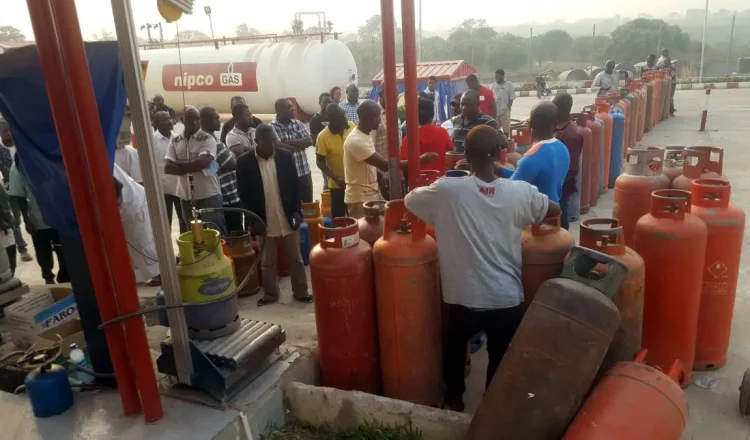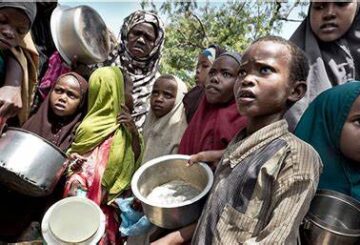Liquefied petroleum gas, commonly referred to as cooking gas, is in short supply in Lagos and several other Nigerian states.
Findings indicate that Katsina, Sokoto, Delta, Kaduna, and Kano are the other affected states.
According to information obtained by The PUNCH, the commodity’s price has been rising since late last month, leading to a steady increase in pricing.
Recall that operators of petrol terminals reportedly raised prices by 66% in October alone. Even though NLNG is now providing 20 metric tonnes of cooking gas to them at a cost of N9 million, the price of 20 metric tonnes of cooking gas increased from N10 million at the beginning of the month to N16 million as of late last month.
Because they were unable to obtain sufficient quantities, some of the traders told the media that gas plant owners now sell to them for between N1100-N1200 per kilogramme.
12.5 kg cost about N8, 700 as of June. As of Saturday, the price had increased to between N13, 500 and N14, 000, having risen to N10, 200 in September.
It was disclosed on Sunday during a conversation with Oladapo Olatunbosun, President of the Nigerian Association of Liquefied Petroleum Gas Marketers, that Lagos State presently lacks sufficient cooking gas.
“In my own gas plant, I sell at N950 per 1kg. So, by all means, the masses should try not to patronise those that don’t have gas plants because they will also add their profit. Those people are also part of the problem we are facing in the country.
Cooking gas shortages were also reported by a media correspondent in Katsina.
The results show that the scarcity was initially noticed roughly two weeks ago when a number of small retailers expressed dissatisfaction over their non-availability. Additionally, research has revealed that the price of a kilogramme of cooking gas in the state is exactly N1, 400. The scarcity has no official explanation.
In recent days, Sokoto State’s capital has also reported a shortage of cooking gas, which has resulted in a random price increase.
As of Sunday, locals were seen in Kaduna with their cylinders in quest of the product, according to our reports. The results indicated that a five kilogramme retail price was N5, 500.
Although prices are still high, studies from Abuja and Kwara revealed that consumers are not facing scarcity.
While there was no shortage of cooking gas in his area, Roy, a resident of Karu in the AMAC Area Council of Abuja, said that the pure and liquefied gas he experienced was no longer as long-lasting.
According to him, “So for me, the problem I’m having is it liquefies. So instead of having the normal gas, you end up with like seventy percent gas, and thirty percent liquid that’s inside the cylinder, for whatever you buy.
“So initially we were not even aware, until we noticed that when we shake the cylinder, it’s always leaving the liquefied part under. So, it ends within like two or three weeks before the normal period when it should last.”
Sandra, a different resident, claimed that cooking gas was not in short supply but that its cost had increased.
“I bought gas today at Abacha road in Mararaba. 12.5kg for N13,500. I wouldn’t say there is scarcity, just that it has become expensive.”





